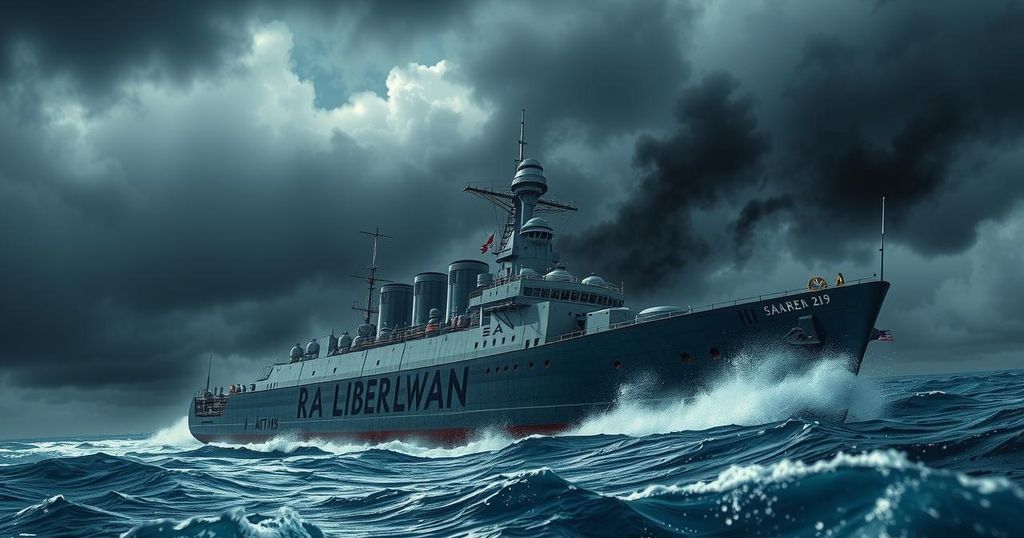In August 1980, a Libyan warship threatened a Maltese oil rig, halting operations amid a dispute over continental shelf demarcation. Despite Malta’s attempts to assert its economic independence from military reliance, Libya’s military intervention disrupted its oil exploration plans. This incident highlights the risks small nations face, illustrating that neutrality does not always deter aggression from neighboring countries. Ultimately, the dispute was settled by the International Court of Justice in 1985, but Malta’s search for oil came up empty.
In August 1980, the Libyan government dispatched a warship to prevent a Maltese-contracted oil rig from drilling on the Medina Bank, escalating an ongoing dispute over continental shelf demarcation between Malta and Libya. This incident occurred while oil workers were actively engaged in drilling operations, as Texaco, along with other companies, had received concessions from Malta to explore for oil and gas since 1974.
The approach of the Libyan naval vessel marked a shift from diplomacy to military intimidation, as workers were ordered to halt their work immediately. The Libyan government sought to assert its claims over the disputed maritime boundary, prompting Malta’s Permanent Representative to the UN, Victor J. Gauci, to communicate with the Security Council in search of protection, emphasizing that even small nations should not suffer unlawful interference in their activities.
Malta was left unable to conduct oil exploration, a significant blow given its intentions to bolster its economy independent of foreign military dependence. Prime Minister Dom Mintoff highlighted the irony of being pressured by a neighboring country with which Malta had historically amicable ties. The tensions represented the culmination of a long-standing continental shelf disagreement that ultimately required resolution by the International Court of Justice in 1985 following UN intervention.
The origins of this conflict date back to the post-1971 political landscape when Mintoff aimed to transition Malta towards oil exploration to escape reliance on the British military base by 1979. However, the conflicting interpretations of the median line between Malta and Libya meant defining territorial rights was crucial for successful oil drilling.
Although Libya signed an agreement to take the dispute to the International Court of Justice in 1976, it failed to ratify, causing increasing friction between the two nations. Mintoff emphasized the urgency of ratification in his communications with Libyan leader Gaddafi, expressing that exploration work was vital for Malta’s economic future and its aspirations toward neutrality.
After repeated delays from Libya, Malta decided to proceed with drilling. However, simultaneous diplomatic tensions worsened following Libya’s objection to Malta’s drilling intentions, leading to an official protest in May 1980, which culminated in the military intervention on August 20 of that year. The International Court eventually ruled in favor of Libya’s claims in 1985, adjusting the demarcation line but not completely settling Malta’s claims amid competing territorial interests from other nations.
Malta’s pursuit of oil, unfortunately, yielded no findings. The incident reiterated that neutrality does not guarantee protection from external threats, as Libya’s aggressive stance against Malta illustrates the limitations of diplomatic relationships when faced with military actions. These historical lessons remain relevant today, particularly in a European context seeking stronger defense mechanisms amid rising geopolitical tensions, underscoring the need for Malta to enhance its defense capabilities while adhering to its constitutional commitments to neutrality.
The incident involving the Libyan warship represented a critical moment in Malta’s efforts to establish economic independence through oil exploration, reflecting the complexities of international relations and territorial disputes. Despite Malta’s aspirations for neutrality and cooperation with Libya, it faced military threats that curtailed its resource development initiatives. This historical context emphasizes the importance of assessing national defense strategies in light of ongoing geopolitical challenges and the need to secure critical infrastructure against potential aggressions.
Original Source: www.maltatoday.com.mt






